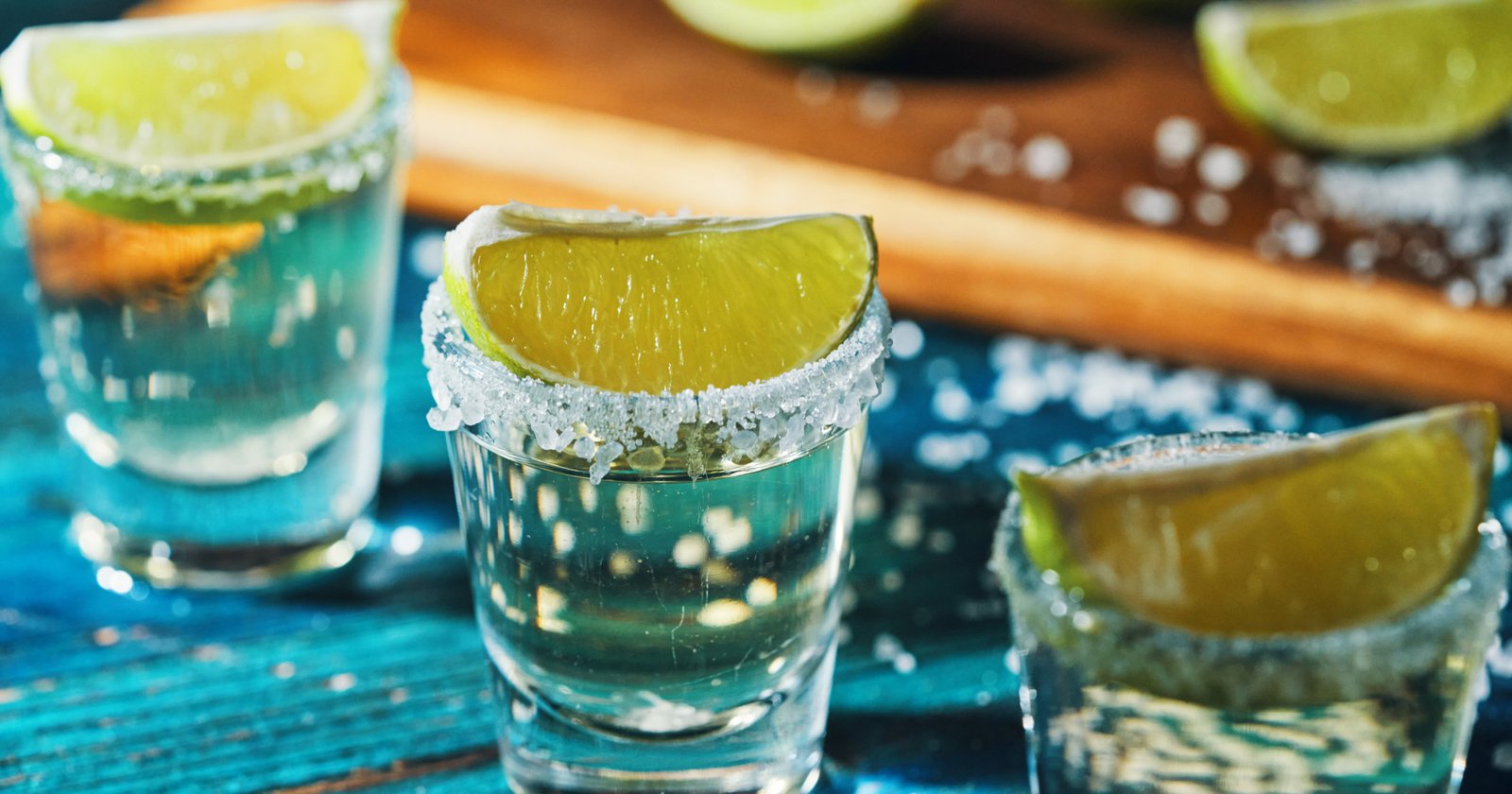When it comes to alcohol, each person has their own preferences. Personally, I’m an Aperol Spritz person and just thinking about vodka makes me nauseous. But in the name of health, there’s no doubt that some alcoholic beverages are better for you than others, and tequila usually ranks high on the list. This may come as a surprise to those who have drank too many Tequila Sunrises and woke up with a severe hangover. So we asked RDN frankly, “Is tequila good for you?”
First and foremost, “good” is a loose term when used in this context. Tequila isn’t “good” for you any more than water is “good” for you. That said, tequila can be a healthier option than other alcoholic beverages, says Gowri Reddy Rocco, MD, a double board certified physician in family medicine and regenerative, anti-aging, and functional medicine. says.
But does tequila have any health benefits? And what are the risks with the party favorite spirit? Keep reading for everything you need to know about tequila from the experts.
Experts introduced in this article
Dr. Gowri Reddy Rocco is a dual board certified physician in family medicine and regenerative, anti-aging, and functional medicine.
Kimberly Gomer, RDN, is a registered dietitian based in Miami.
What is tequila?
Tequila is a distilled beverage made from the blue agave plant, says Kimberly Gomer, a registered dietitian based in Miami. The drink is mostly made in Mexico and typically has an alcohol content (ABV) of 40 to 60 percent, or 80 to 120 proof.
This liquor is made from the heart of the agave plant (also known as piña), and some bottles are 100 percent agave, 100 percent blue agave, or 100 percent agave Azul Tequila, although some brands contain cane sugar. has been added. Sugar, Gomer says. Tequila is made with agavin, a natural, less refined form of fructose, so be careful not to confuse it with agave nectar, Dr. Rocco added.
Is tequila healthier than other alcohols?
it depends. Because tequila is made from agavin, it has a lower glycemic index than other alcohols such as wine, beer, and mixed cocktails, Dr. Rocco says. So it could be a safer option for diabetics and people trying to limit their sugar intake, she says. Keep in mind that pairing tequila with sweet mixes will negate any potential low-carb or low-sugar benefits, Gomer says. (That’s why there’s a Tequila Sunrise hangover.)
Tequila is also distilled and gluten-free, so it may be a better choice than beer for people who need to avoid gluten, Gomer notes.
But if you’ve heard rumors that people with celiac disease or gluten intolerance who accidentally ingest gluten should drink tequila to minimize the after-effects, ignore it. Both Dr. Rocco and Gomer agree that there is “absolutely” no scientific evidence to support this claim.
Tequila health benefits
Tequila has less refined sugar than other alcohols, but the drink itself has no health benefits.
Agavin may support calcium absorption, which may help prevent bone loss and osteoporosis, Dr. Rocco says. According to her, agavin her fructan is also considered a prebiotic and probiotic, so she can be taken in one shot before or after meals. May It aids in digestion, but because tequila is fermented, those health benefits are unlikely to translate into a shot glass.
In the end, the potential benefits are not so significant that everyone should add tequila to their diet in hopes of taking advantage of it. There are other ways to boost your bone and gut health without the downsides of regular alcohol consumption (see more below).
You should also be careful about the type of tequila you buy, says Dr. Rocco, because not all tequila is created equal. “To get the most out of your tequila, you need to get the ‘top-of-the-line’ version, which is made with 100 percent agave.” Many tequilas contain added sugar, additives, and colorants. Gomer adds that it’s important to be sure what you’re actually buying, as the health benefits can be negated.
Does tequila have any drawbacks or risks?
The truth is, tequila (and all alcohol for that matter) is toxic to the body, Gomer says. According to Dr. Rocco, frequent drinking can increase your risk for addiction and dependence, lack of sleep, weakened immune system, high blood pressure, dementia, obesity, depression, and anxiety. Frequent alcohol consumption is also linked to cancer, liver damage and elevated triglyceride levels, Gomer added.
On top of that, tequila that isn’t made entirely from the blue agave plant (commonly known as “mixtro”) typically contains fructose, glucose, and gluten, which spikes blood sugar levels, Dr. Rocco says. says. “If you’re drinking to avoid sugar intake and gluten exposure, it’s best to get traditional 100% blue agave tequila, even if it’s more expensive.”
conclusion
Dr. Rocco says tequila is made with less refined sugar than other alcohols. So if you’re going to drink alcohol anyway, choosing 100% blue agave tequila and drinking it without any sugary mixers may offer some health benefits over choosing other forms of alcohol. It may happen.
Still, alcohol is addictive and can have negative effects, so moderation in quantity and frequency is the name of the game with tequila.
Andy Breitwich is a Chicago-based freelance writer and graduate of Emory University and Northwestern University’s Medill School of Journalism. Her work has appeared in PS, Women’s Health, Cosmopolitan, and more.

